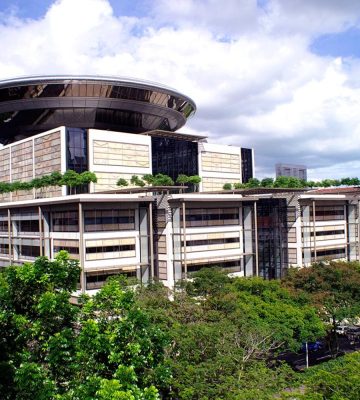On January 16, 2023, the Beijing No. 1 Intermediate People’s Court (Beijing Court) issued a ruling (2022) Jing 01 Po Shen No. 786 (2022) 京01破申786号 to recognize the bankruptcy ruling of 91IE5/10 by Aachen local court (German Judgment) and the capacity of an individual named DAR as the bankruptcy administrator of LION GmbH, General Contractor & Engineering (Company) to perform duties in Mainland China.
Background
The Company was registered in Aachen, Germany, and was ruled to be bankrupt by the Aachen local court on January 1, 2011 in the German Judgment. The same judgment appointed DAR as the bankruptcy administrator of the Company.
It later transpired that the Company bought real estate situated in Beijing (Beijing Property) in 1997, and that DAR, in his capacity as the bankruptcy administrator, signed a property purchase contract with the Singapore affiliate of the Company by which the Singapore affiliate paid for the Beijing Property.
DAR applied to the Beijing Court for recognition of the German Judgment and his capacity as the bankruptcy administrator because he intended to go through ownership transfer procedures for the Beijing Property.
Finding
Upon review, the Beijing Court found, among others, that:
The German Judgment signaled the commencement of the “foreign” main proceedings of the Company;
The Company’s center of main interest was Germany because Aachen was where the key management and business operations of the Company took place, despite cross-border trade in goods between the Company and its offices in China;
The Singapore affiliate of the Company has already paid for the Beijing Property, and the Beijing Property has been handed over to the Singapore affiliate for de facto use. No other party has asserted rights over the Beijing Property which is also the sole property owned by the Company in the Mainland; and
The Company’s offices in Mainland China have all closed down after completing all residue matters. Further, the Company is not involved in any litigation or enforcement case in the Mainland, and has no Chinese onshore creditors.
Judgment
The Beijing Court based its judgment on Article 5 of the Enterprise Bankruptcy Law, which requires Chinese courts, in deciding whether to recognize a foreign bankruptcy judgment, to review whether there is any applicable international treaty between China and the foreign country involved (in this case Germany), or whether the principle of reciprocity applies in the absence of any relevant international treaty.
As there is no relevant international treaty between China and Germany, the Beijing Court examined the application based on the principle of reciprocity, and held that reciprocity was established on the following grounds:
(1) Article 343 of the German Insolvency Law stipulates that the commencement of foreign insolvency proceedings should be recognized. Accordingly, Chinese bankruptcy proceedings are entitled to be recognized in Germany; and
(2) There is no evidence that Germany has previously refused to recognize any Chinese bankruptcy proceeding or judgment.
The Beijing Court further concluded that based on the Enterprise Bankruptcy Law, the Aachen local court was the competent court to render the German Judgment. In addition, neither the German bankruptcy proceedings as prescribed by German law nor the Company’s actual circumstances constitute any discriminatory treatment of Chinese creditors. Pursuant to Article 5 of the Enterprise Bankruptcy Law, even if reciprocity is established, a foreign bankruptcy judgment can only be recognized if it, among others, does not undermine the legitimate rights and interests of creditors within China.
The Beijing Court has accordingly recognized the German Judgment and the capacity of DAR to perform relevant duties in the Mainland, noting that the scope of duties granted to DAR by the German Judgment based on German law is within the scope of duties prescribed by the Enterprise Bankruptcy Law.
Commentary
In August 2021, the Xiamen Maritime Court recognized the capacity of a foreign insolvency officeholder (in a Singapore High Court judgment) pursuant to Article 5 of the Enterprise Bankruptcy Law, making it the first time that any Chinese court has relied on that particular provision to recognize any foreign bankruptcy judgment.
However, the Xiamen Maritime Court did not specifically engage in the examination of the treatment of Chinese creditors which is another limb of Article 5. The Beijing Court has specifically discussed this aspect in the current case.
Read the full judgment in Chinese here. Another commentary in English is available on this website.
More about China’s reorganization and insolvency regime and past cases where Chinese courts have recognized foreign bankruptcy judgments can be found in the jurisdictional report for China in Corporate Restructuring and Insolvency in Asia.
Whilst every effort has been made to ensure that the information contained in this update is correct, the Asian Business Law Institute disclaims all liability and responsibility for any error or omission in this update, and in respect of anything, or the consequences of anything, done or omitted to be done by any person in reliance, whether wholly or partially, upon the whole or any part of the contents of this update.






